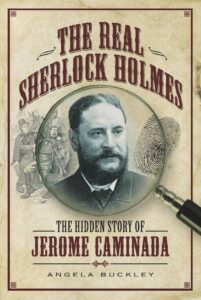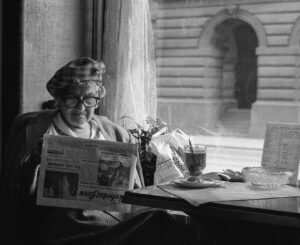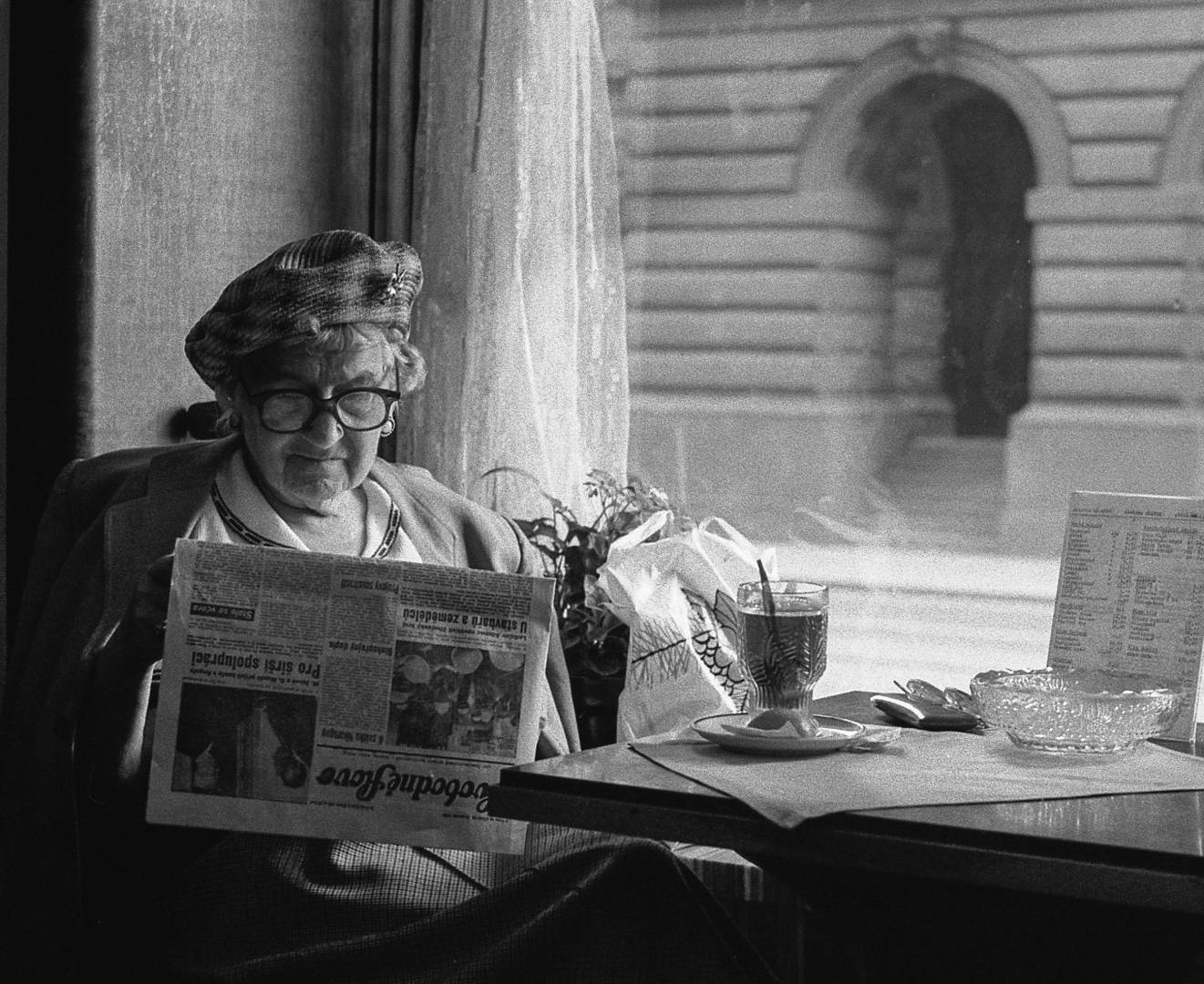
Although the internet is taking over from traditional print as our main source of daily news bulletins, the massive archive of newspapers remains a valuable resource for writers of both fiction and non-fiction. True-crime writer Angela Buckley, whose books include The Real Sherlock Holmes: The Hidden Story of Jerome Caminada, provides her top tips for harvesting ideas from old newspapers.
Sensational headlines and fake news were just as common in the past as they are today. Researching historical newspapers can be invaluable for both non-fiction and fiction writing projects, but the process can be complex and misleading. Here are my top tips for navigating the fascinating world of ‘old’ news:

Old news is good news for indie authors in need of research and story ideas (Image by Anders Nord via unsplash.com)
- Testing the water – if you’d like to dip your toe into the world of historical newspapers, check out one of the main digital news collections, such as the British Newspaper Archive www.britishnewspaperarchive.co.uk (free trial available). Choose a place and a date and see what was in the news on that day – I guarantee you’ll find something that piques your interest.
- Location, location, location – reading descriptions of your key places in the past can help you paint an accurate and evocative setting. Local and regional newspapers often provide very detailed accounts of events, including national celebrations, technological innovations, reports on social conditions and even heinous crimes. Start by reading the newspapers that were published as close as geographically possible to where your event or story took place.
-

You couldn't make it up! Fact is often stranger than fiction when you look back at old newspapers
Go off piste – whilst there are hundreds of newspapers now available online, some local publications are still only available in libraries and county archives. You’ll be able to read your regional paper on microfilm and, if you’re lucky, they may even have original hard-backed copies, which really do take you back in time. Also, you should be able to access some digital newspapers for free, from the comfort of your own study, via your library user’s card.
- Weekly reads – some publications were weekly and others daily. If you’re researching a significant event or a series of smaller incidents, begin with one or two weekly newspapers to give you an overview of the action, especially if it takes place over several weeks or months. This may help with planning and plotting.
- Day-by-day – once you’ve used a weekly newspaper to gain an overview of an event or situation, you can then fill in the details by following the daily news within the time frame.
- Compare and contrast – once you’re ready to begin your investigation in earnest, select a main source from the newspapers. Extract all the details and then use other publications to compare notes. This will allow you to build up a layered account and to cover all angles methodically.
-

Victorian newspapers were often more sensationalist than their modern equivalent – fake news is old hat!
Beware fake news – as today, there were plenty of untruths, missing information and red herrings in historical news reports. By comparing different versions of the same story, the inaccuracies and omissions should stand out. You can then deal with each one in turn and try to seek out the truth. For fiction, they may offer different viewpoints that you can use to tell one story through a multilayered approach.
- Clickbait – Victorian newspapers carried lurid headlines and graphic detail. Keep a note of sensationalized phrases, as they are very useful for titles and subtitles, quotes, and maybe even dialogue. They will certainly add color to your writing.
- Note to self – it is always a good idea to note down the references of specific publications, even for fictional work. If you don’t need to include references in your own published work, at least you’ll be able to find a source when you need it again later.
- The joys of journalism – old newspapers are a tremendous source of information of all kinds, and you can easily become distracted by an intriguing title or a bizarre report. Sometimes it’s worth just plunging in to see what’s there and you may well find some inspiration for your next book.
OVER TO YOU What's the best story you've ever found in old media? What other sources do you like best? Join the conversation!
For #ww, why old #newspapers are a great source of material for #nonfiction and #fiction writers alike - and how to make the most of them - by #truecrime writer @amebuckley Share on XMORE HELPFUL POSTS ABOUT RESEARCH
From the ALLi Author Advice Center Archive




